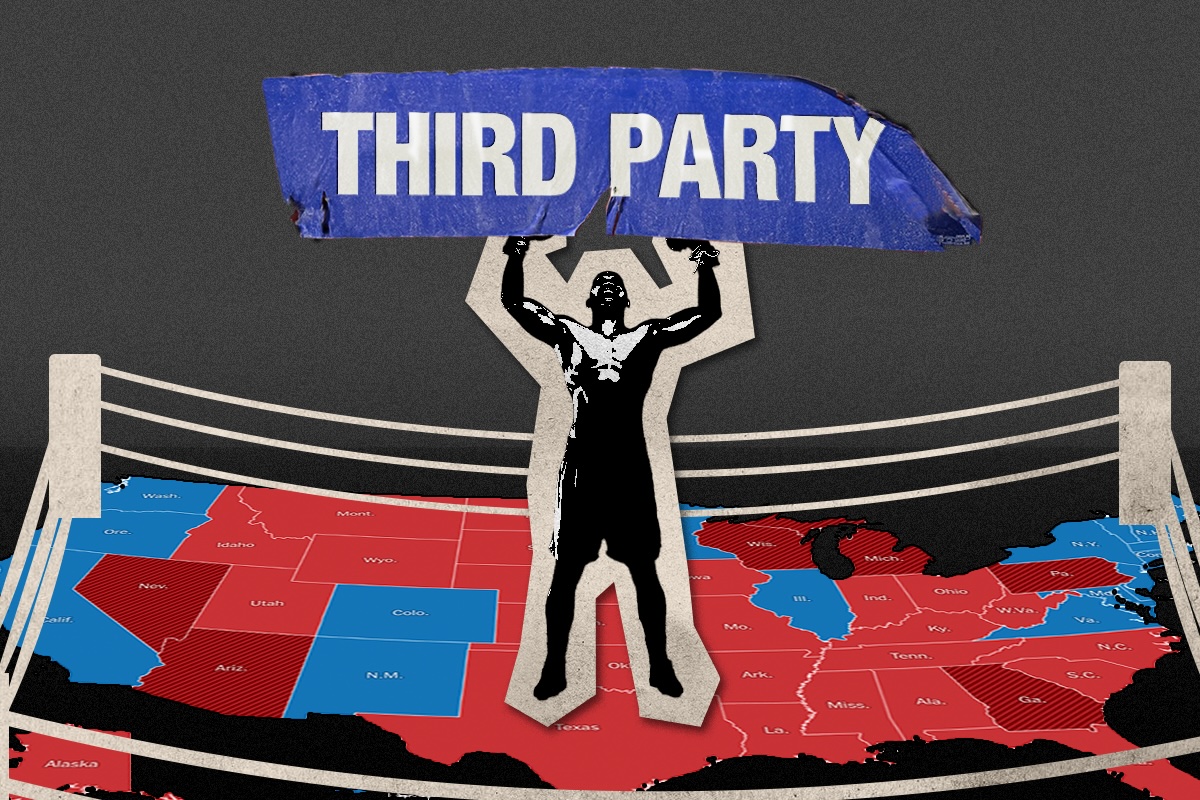The United States is not a fair democracy. The past election cycle has forced people to vote for the lesser of two evils: a woman whose hands bled red due to her complicity in the Israel-Hamas war and a convicted felon. To say that millions of other Americans and I were disappointed by the contenders in the 2024 presidential election is an understatement. However, the polarization of this election brought about a new conversation: third-party voting.
As of June 2024, 53 ballot-qualified parties and 235 state-level parties exist in the United States, according to Ballotpedia. These are called “third parties.” The electoral system in the U.S. is called a two-party system, meaning that the two parties (in this case, the Democratic and Republican parties) dominate the executive, judicial and legislative branches.
Although third-party candidates received a minuscule percentage of the votes, in an election as high-stakes as this, every vote had greater value.
The 2024 election marked a pivotal moment in America’s history, with the stakes as high as the nation’s collective anxiety about its future. At the heart of this intense contest lay a heated debate on the role of third-party voting in a system already weakened by polarization and disillusionment. Third-party candidates, often the torchbearers of fresh ideas and progressive movements, undeniably play an essential role in challenging the status quo and pushing major parties to confront issues they might otherwise sideline.
In 2024, the contrast between the two major-party candidates was seismic, encompassing issues like economic recovery, healthcare access, climate action and America’s standing on the global stage. These were choices with real life consequences for millions of Americans and the planet’s future.
For many, voting was a civic duty and a desperate plea for stability, progress or survival. Those grappling with the fear of losing fundamental rights or watching democracy falter felt the urgency of uniting against the more significant threat.
However principled or symbolic, casting a ballot for a third-party candidate in 2024 was a gamble with potentially far-reaching consequences. In swing states, where margins were razor-thin, these votes held the power to tip the balance —- not toward a bold new political horizon, but potentially toward an outcome opposed to a voter’s values. Although third-party candidates received a minuscule percentage of the votes, in an election as high-stakes as this, every vote had greater value. For example, the more left-leaning third-party candidates such as Jill Stein and Cornel West took away more votes from Harris in this election. According to the Associated Press, 2,523,241 people in the United States voted for third-party candidates. The unintended result of this election fueled the empowerment of a candidate whose priorities conflicted with the aspirations of third-party voters.
The emotional weight of this election was undeniable. For many, voting was a civic duty and a desperate plea for stability, progress or survival. Those grappling with the fear of losing fundamental rights or watching democracy falter felt the urgency of uniting against the more significant threat.
In this election cycle, 63% of voters felt the need for a third party due to the poor jobs of the Democrats and the Republicans. People have felt unheard, left behind by a system that seems rigged for the powerful and indifferent to the powerless. In 2024, the stakes demanded a sobering question: Is this election the moment to make a stand, or ensure the path forward remains viable?
The 2024 election was too pivotal to cast votes for parties with little realistic chance of winning; idealism should have given way to pragmatism. Others were called upon to think not just of individual expression but of the far-reaching consequences of their choices. The intentions behind the third-party vote were for climate action, social justice, economic stability, foreign policy and other issues. Still, the third-party vote backfired and took the U.S. in the opposite direction.
The freedom to vote for a third-party candidate is a way to express frustration with the shortcomings of the two-party system; which is valid, especially when major parties often fail to address all citizens’ needs thoroughly. The American political system needs better representation and accountability.
Participation in shaping the nation is one of democracy’s greatest strengths and should always be celebrated. But this election illuminated something more — the importance of using that freedom responsibly as a tool to drive real change. Pragmatic voting was not about abandoning principles but prioritizing what was possible over what was ideal, ensuring that incremental progress could continue.
The emotional gravity of 2024 was undeniable. It was about more than politics; it was about people — their livelihoods, rights and futures. In moments like this, voting becomes more than a civic duty; it becomes an act of hope, a refusal to give up and a commitment to ensuring that the future is shaped by those who care enough to show up.

